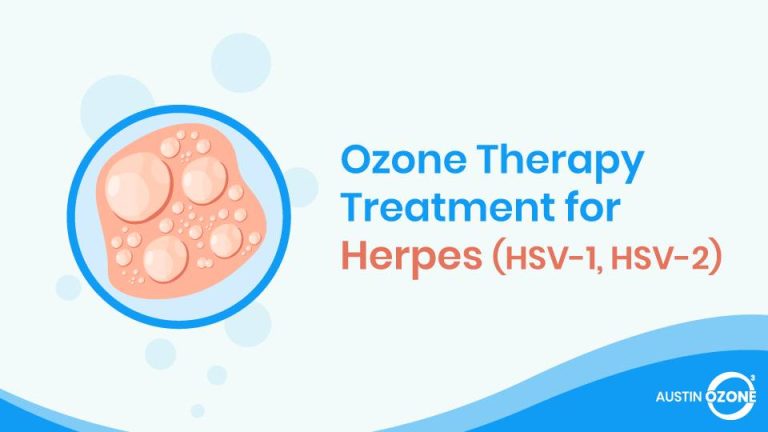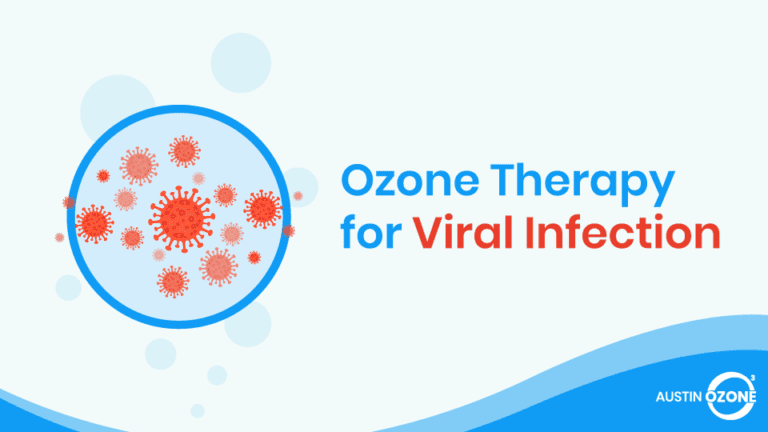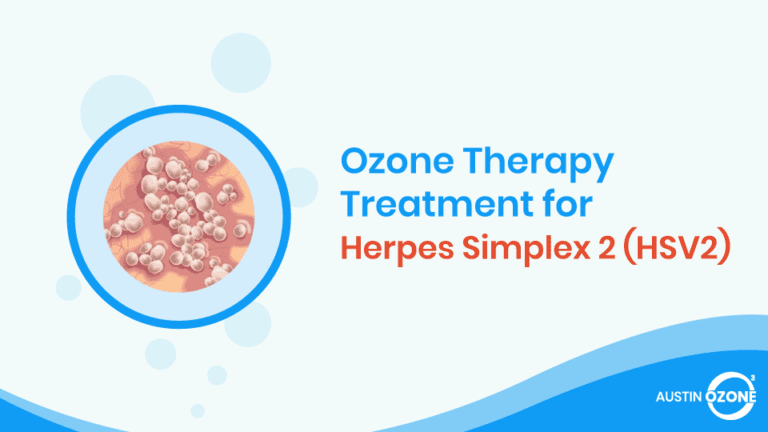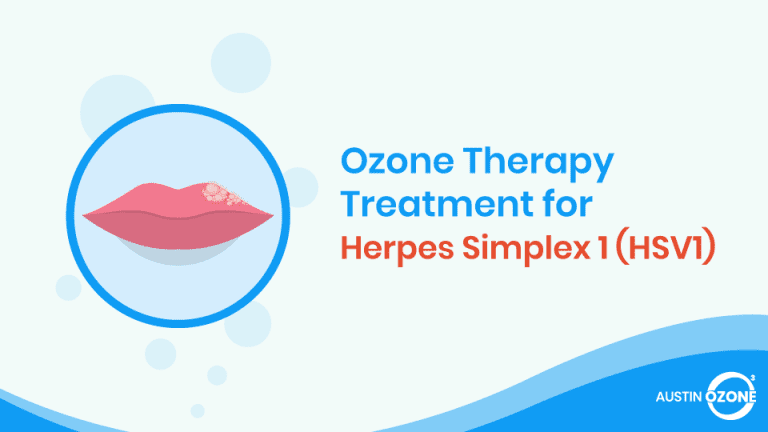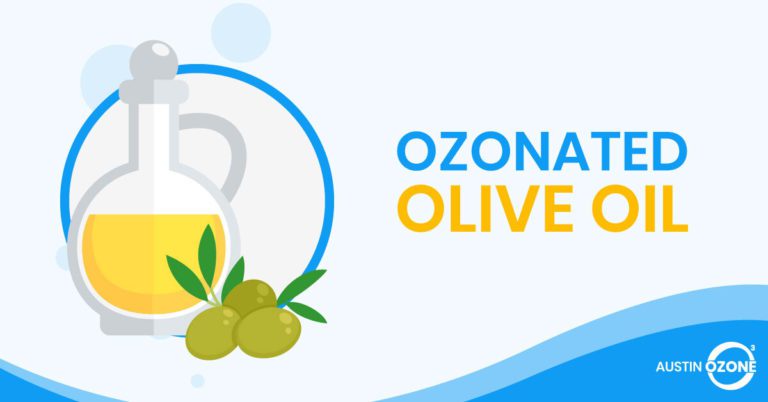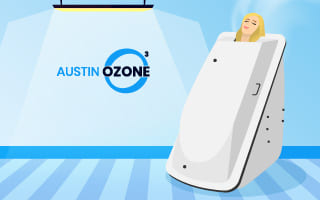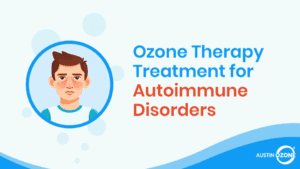One of the most commonly transmitted diseases is herpes. It is caused by two types of viruses: the herpes simplex virus type 1 (HSV-1) and herpes simplex virus type 2 (HSV-2). Both types can be easily acquired and spread.
If a person acquires a herpes simplex virus infection, they will have it for the rest of their life.
Schedule an Ozone Therapy Session Today!
Overview of HSV-1, HSV-2
According to the World Health Organization8, approximately 3.7 billion people worldwide are infected with HSV-1 infection, while a staggering number of 491 million people have HSV-2 infection.
The problem with herpes is that it is possible to acquire it without exhibiting any symptoms. What’s worse is that even without symptoms, a herpes infection can still be transmitted to others.
Herpes is caused by either the HSV-1 or HSV-2 virus. HSV-1 is usually transmitted via close contact (oral herpes) while HSV-2 is transmitted via sexual contact (genital herpes).
Those who have this disease report a burning, itching, or tingling sensation following the formation of blisters either around the mouth or the genitals. The blisters are usually pus-filled and are painful to touch.
Herpes Simplex Virus Type 1 (HSV-1)
HSV-11, also known as oral herpes, is highly contagious. Blisters often appear around the mouth, on the lips, or on the tongue, though there are times when these blisters also occur on the face.
These sores last between 2 and 20 days after contact with an infected person. While the majority of HSV-1 infection manifests as oral herpes, a portion displays itself as genital herpes.
However, signs and symptoms do not always show in HSV-1 infections. In fact, those who are infected with oral herpes are mostly asymptomatic8 and are unaware that they have been infected.
Before the blisters appear, those who are infected will feel a tingling, itching, and burning sensation. Although the sores might disappear, they can recur any time.
HSV-1 is mainly transmitted through oral contact (i.e., kissing, touching). Asymptomatic patients can still transmit the virus, although the chances of doing so are higher if they have open sores.
HSV-1 is mainly transmitted through oral contact (i.e., kissing, touching). Asymptomatic patients can still transmit the virus, although the chances of doing so are higher if they have open sores.
In some instances, it is possible to transmit HSV-1 virus to an infant during delivery (known as neonatal herpes). However, if a person already has HSV-1 oral herpes, then it would be impossible for them to acquire HSV-1 genital herpes.
Herpes Simplex Virus Type 2 (HSV-2)
HSV-2 can only be transmitted through sexual contact. According to statistics8, women are more prone than men to getting this infection. Moreover, it is more prevalent among adolescents than any other age group.
HSV-2 infection is often characterized by genital or anal ulcers (blisters), with accompanying body ache, fever, and swollen lymph nodes.
As with those infected by HSV-1, those infected with the HSV-2 infection may feel tingling or pain in their hips, legs, or buttocks prior to the appearance of open sores. The sores may last for 2 to 6 weeks upon infection.
As with HSV-1, the symptoms can recur over time, although less frequently and less severe than during the first outbreak.
It is possible for people who are already infected with HSV-1 to also be infected with HSV-2.
Risk Factors for Herpes
Risk factors can either make an existing infection worse or increase the probability of acquiring it.
Weak Immune System
A weak immune system makes your whole body vulnerable to viruses.
There are many reasons a person may have a weak immune system. It may be because of genetic factors, an autoimmune condition, or due to ongoing treatment for an existing illness (e.g., cancer, organ transplant).
Taking Immunosuppressant Medication
Immunosuppressants are substances that decrease the immune system’s response and ability to fight off infections.
They are often taken by people who have undergone surgery like an organ transplant in order to prevent the body from rejecting the new organ. Since the immune system is down, the body is more prone to acquiring a virus infection.
HIV Infection
Human Immunodeficiency Virus (HIV) is acquired from fluid (blood, semen, vaginal) transmission and causes a wide range of symptoms, including the weakening of the immune system.
The immune system’s major function is to protect your body against infections, thus someone with immunodeficiency will get sick more often and longer and will be more vulnerable to infections.
Having Unprotected Sex and Having Multiple Partners
The fastest way to acquire a sexually transmitted disease is to have unprotected sex with multiple partners. Sex, in this sense, also includes oral sex. For HSV-1, even the simple act of kissing can transmit the virus.
Sharing Personal Items
Personal items like cups, towels, toothbrushes, mouthguards, and lip balms are some of the things that are not meant to be shared with others, not even with your significant other.
HSV-1 is easily spread via oral-to-oral contact even when there is no medium in between.
Complications Arising From Herpes Infection
Human Immunodeficiency Virus (HIV) is acquired from fluid (blood, semen, vaginal) transmission and causes a wide range of symptoms, including the weakening of the immune system.
The immune system’s major function is to protect your body against infections, thus someone with immunodeficiency will get sick more often and longer and will be more vulnerable to infections.
If you are already suffering from other ailments, your condition may be worsened if you become infected with a herpes virus. This is especially true for people with HIV. HSV-2 increases the chance of contracting and transmitting HIV, and vice-versa.
On the other hand, HSV-1 increases the risk of acquiring other types of infection because of a weakened immune system.
Sometimes, the herpes virus can lead to a more severe complication like encephalitis (inflammation of the brain) or keratitis2 (inflammation in the eye). It can even spread further to your lungs, esophagus, or liver.
Even if you used to be healthy, acquiring either HSV-1 or HSV-2 can have a serious psychosocial impact. People with herpes suffer from a social stigma that can affect their relationships and quality of life. It is therefore common for infected patients to experience depression, anger, or other emotional problems.
How Herpes Is Diagnosed?
If you are symptomatic, the pain and blisters around your face or genitals should indicate that you have been infected, and will prompt you to schedule a medical appointment to be evaluated.
A swab test is often necessary to confirm if you have HSV. Swab samples (i.e., skin, fluid from the blisters) will be taken for viral culture. If the test comes back positive, it verifies that you are infected with herpes.
A swab test is often necessary to confirm if you have HSV. Swab samples (i.e., skin, fluid from the blisters) will be taken for viral culture. If the test comes back positive, it verifies that you are infected with herpes.
However, in most cases, the patient is asymptomatic and has no idea they are carrying the herpes virus in their bloodstream.
If you know that you have had close contact with someone with HSV or suspect that you are infected, the doctor will order a blood test to look for specific antibodies, the presence of which confirms the presence of the virus. Antibodies are substances that your immune system naturally produces to fight an infection.
Common Treatment Methods for Herpes
Unfortunately, no drug can eliminate either of the herpes viruses. The best thing a doctor can do is prescribe an antiviral medication to prevent the virus from multiplying. Other drugs are also prescribed to manage its symptoms.
The most effective antiviral drugs like famciclovir, acyclovir, and valacyclovir can effectively reduce the severity and frequency of the infection.
Topical creams are often used to manage the tingling, burning, or itching sensations. Typically, the treatment should start as soon as the tingling sensation starts. This is to reduce the severity of the oncoming blister outbreak.
Patients who start taking antiviral and over-the-counter creams will be able to get relief as early as after two days. For recurring cases, doctors may suggest taking antiviral drugs every six months to prevent breakouts, depending on the frequency of the recurrence.
Ozone Therapy for Herpes (HSV-1 and HSV-2)
The use of medical ozone to combat viral infections is not entirely new. As early as 1856, ozone gas was being actively used to disinfect surgical tools and equipment as well as a way to kill off bacteria and viruses found in drinking water.
According to many studies4, ozone has high antibacterial and antiviral properties that makes it the perfect disinfectant. There are many methods by which you can administer medical ozone to the body. However, for the purpose of treating both HSV-1 and HSV-2, it seems that topical ozone3 and major autohemotherapy9 yield the best results.
There are many methods by which you can administer medical ozone to the body. However, for the purpose of treating both HSV-1 and HSV-2, it seems that topical ozone and major autohemotherapy yield the best results.
For the topical ozone method, researchers found that the use of ozonated oil on the affected area greatly reduces the pain, itching, and tingling sensation. Compared to over-the-counter topical creams, ozonated oil shortens the course of treatment without showing any adverse effects.
On the other hand, major autohemotherapy disinfects the blood and strengthens the immune system. This method involves infusing a small volume of the patient’s blood with ozone gas and injecting it back to the body intravenously. Both effects can bring immediate relief to the herpes patient.
Conclusion
Although both HSV-1 and HSV-2 are incurable and are lifelong diseases, it is still possible for an infected person to live normally. Medications and alternative treatments are widely available for the patient to manage the disease.
If you are wary of taking antiviral medications for their potential side-effects, you should consider ozone therapy as a viable alternative treatment. It is fast, effective, and has no known side-effects.
To know more about ozone therapy and its wonderful benefits, contact a certified medical ozone expert today.
Schedule an Appointment Today
References
- American Academy of Dermatology Association. (n.d.). HERPES SIMPLEX: SIGNS AND SYMPTOMS. Retrieved from https://www.aad.org/public/diseases/a-z/herpes-simplex-symptoms
- Guliyeva, M., Gasimov, E., & Huseynova, S. (2018). The effectiveness of ozone therapy used in the prevention of relapse in patients with ophthalmic herpes. J Clin Exp Ophthalmol, 9, 54-55. doi: 10.4172/2155-9570-C5-091
- Huang, J., Huang, J., Xiang, Y., Gao, L., Pan, Y., & Lu, J. (2018). Topical ozone therapy: An innovative solution to patients with herpes zoster. Zhong Nan Da Xue Bao Yi Xue Ban, 43(2), 168-172. Chinese. doi: 10.11817/j.issn.1672-7347.2018.02.011
- Mattassi, R., D’Angelo, F., Franchina, A., & Bassi, P. (2019, November 2). Ozone as therapy in herpes simplex and herpes zoster diseases. Retrieved from https://www.ozonetherapiesgroup.com/ozone-research/2019/11/2/ozone-as-therapy-in-herpes-simplex-and-herpes-zoster-diseases
- Naturopathic Currents. (n.d.). Topical ozone therapy for herpes zoster. Retrieved from https://naturopathiccurrents.com/index.php/node/1915
- Radiant Healing Arts Center. (2020, October 1). OZONE FOR HERPES? HIGH-DOSE C? WHAT THE SCIENCE HAS TO SAY. Retrieved from https://holisticdoctorlosangeles.com/iv-drip-therapy/ozone-for-herpes-high-dose-c-what-the-science-has-to-say/
- Robins, H. (n.d.). YOU CAN GET RID OF HERPES?! Retrieved from https://www.ozonedoctor.net/blog/you-can-get-rid-of-herpes
- World Health Organization. (2020, May 1). Herpes simplex virus. Retrieved from https://www.who.int/news-room/fact-sheets/detail/herpes-simplex-virus
- Zmyzgova, A., Isaeva, N., Isaev, A., Mukhin, P., Zemskova, L., & Kadontseva, N. (2001). METHOD TO TREAT HERPETOVIRAL INFECTIONS INCLUDING OZONOTHERAPY.
